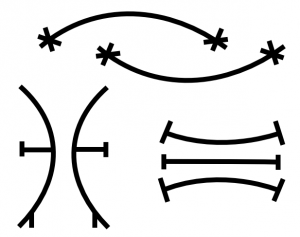
Divorce is the dissolution of marriage between two individuals. Since the early 20th Century, taxed dowries are usually refunded to former husbands after divorce, and on default, women are required to provide sureties for its payment within a specified time. Failure to pay at the expiration of this time will open for the husband the option of moving the court to make a Dipomu order, for which she might be committed to a ward for a fixed time. The view was popular in the 1930s, that when suing for a divorce a woman should be compelled to cite her seducer as plaintiff, so that he and not she might be proceeded against for the recovery of the dowry. In ancient Benin, the most important feature of native marriage was its indissolubility. Divorce as a judicial proceeding was unknown under this system and each contracted union has a stamp of permanency. This practice, with all its risk, is argued by historian P.A. Igbafeto have operated for the good of the community.
As hypothesized in a 1966 research by the Okedejis, published by the Nigerian Institute of Social and Economic research, Ibadan, the increase in divorce rates of the post-independence times may have been connected with the breakdown in the patrilineal system regarded formerly as the basic functional socio-economic unit. Due to the extension of the railway to the city of Ibadan in 1901, Okedeji argued, and the consequent inflow of immigrant groups and commerce, the need arose for a rearrangement of the social unit to confront the attendant introduction of money economy, and scarcity of land. The acceptance of Christianity and Islam doctrines too, provided an excuse for those who because of their economic interest contributed in the destruction of the extended family system; hence the freedom to make decisions of divorce. Women in the 1960s tend to initiate divorce actions more often than men majorly for the failure of husbands to meet their economic needs. They usually end up with apparently wealthier mates, though based on faulty projections which usually leave them hardly better than they were in their previous marriages.





















